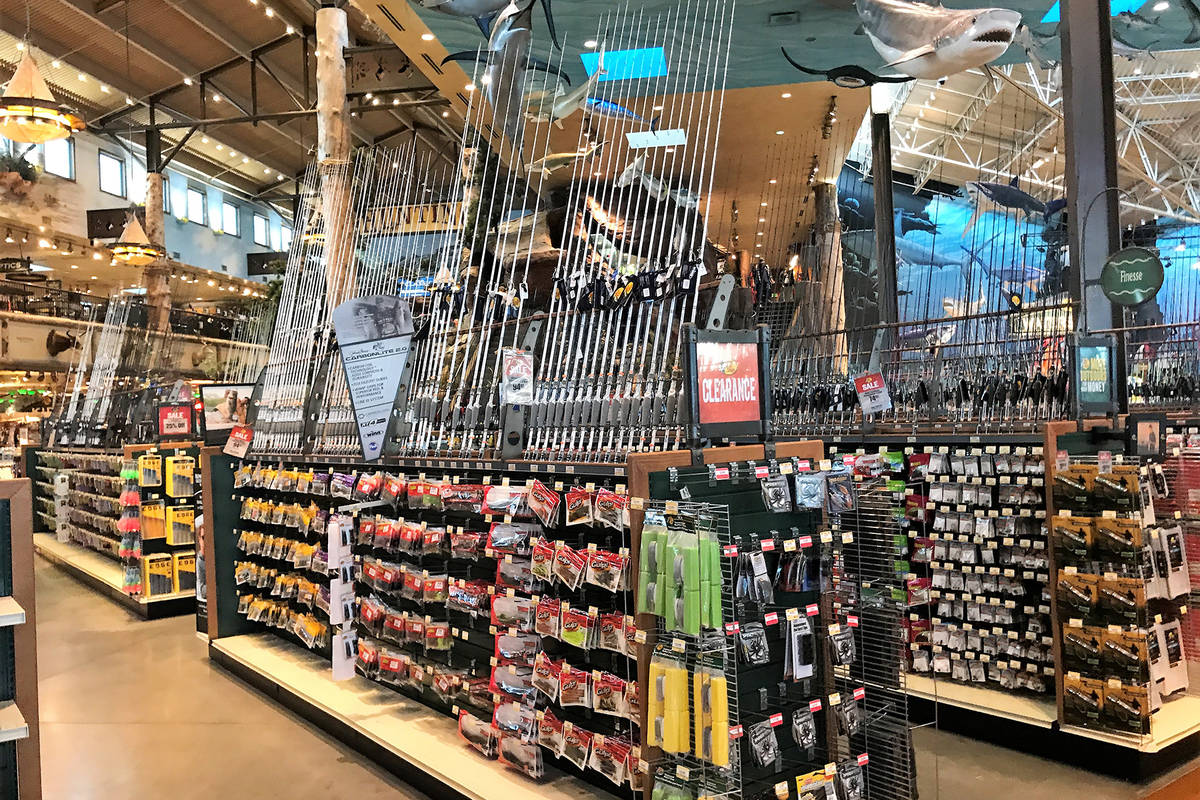Keep your language simple when instructing novice anglers

While visiting one of the valley’s large outdoor retailers recently, I could not help but notice the number of people there to purchase their first fishing rod and a collection of tackle. You can always tell that by the discussions they are having with their companions or the questions they ask of the store clerk.
Then there are those who are too proud to ask questions and show up at the cash register with one of everything. Or those who choose a fishing rod based solely on their color preference rather than their intended use.
For those of us who have spent much of our lives with a fishing rod in hand, some of their questions and choices might seem rather simplistic, but imagine how daunting it might be for a novice angler to walk into a store where hundreds of fishing rods stand in racks along the aisles. They come in multiple lengths and configurations, not to mention colors.
Then there are the aisles lined with everything from spinnerbaits, crankbaits, jerkbaits, buzzbaits, spinners, spoons, jigs, salmon eggs, stink bait and a multitude of plastics. And one cannot help but notice the collections of worm hooks, dropshot hooks, wide gap hooks, circle hooks, swivels, bullet weights, jig heads and egg sinkers.
You get the point.
If that is not enough to discourage a new angler from getting started, there is the unique and rather extensive vocabulary associated with fishing. Words and phrases that are just part of an experienced angler’s daily conversation are like a foreign language to our kids or friends who are just getting started.
Imagine hearing phrases like “set the hook,” “flip the bail” or “still fishing” for the first time. Or terms like top water, strike and bobber.
Several years ago, a reader reminded me of this when he wrote in an email that he did not understand much of what I had written in a column about spring bass fishing. I had made the mistake of using jargon without taking the time to clarify my intended message. Then I wondered, how many others felt the same way.
So, what can we as anglers do to help our family members, friends, neighbors, or the couple we meet in the outdoor section get started in the fishing sports?
First, remember that oftentimes they do not know what you know, and their fishing vocabulary is not as extensive as yours, even when they do not tell you that is the case. Second, keep in mind that if they were brave enough to ask you for help, they are generally willing to learn. Take the time to teach them while you answer their inquiry rather than simply answering their question.
When it comes to kids, keep in mind that when fishing their attention span is only so long. That is true whether the fish are biting or not. If they begin to focus on something other than their fishing rod, it is time to reel in and do something else, even if you still want to fish. Leave them wanting more rather than giving them something to dread.
Keep things simple with a quality spin casting rod and reel. Their push-button release mechanism makes casting easier and they are less likely to experience a backlash. If they spend their fishing time dealing with equipment failure, they may not come back again.
A helpful resource for new anglers is takemefishing.org. This comprehensive website is a storehouse of information related to fishing. While its purpose is to help people become anglers, there is information applicable to all experience levels. Visitors will find pages outlining steps to get started fishing, how to use various types of tackle and how to determine which bait to use for various fish species. There is even a map page to help anglers find a place to fish near their home or vacation destination.
If you are looking to buy a fishing rod, or know someone who is, takemefishing.org is a good place to learn why making your purchase decision based on the rod color is probably not the best idea.
Take a look and see.
Freelance writer Doug Nielsen is a conservation educator for the Nevada Department of Wildlife. His “In the Outdoors” column, published Thursday, is not affiliated with, or endorsed by the NDOW. Any opinions he states in his column are his own. Find him on Facebook at @dougwritesoutdoors. He can be reached at intheoutdoorslv@gmail.com